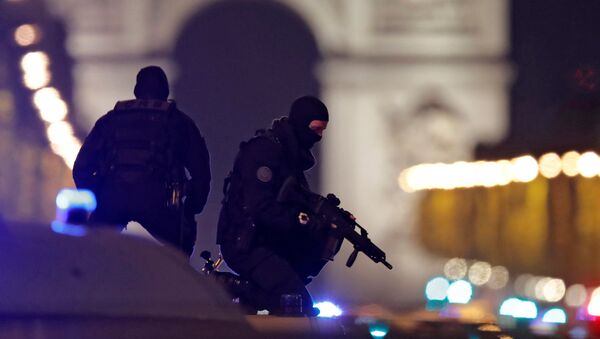CDU chief Annegret Kramp-Karrenbauer, her CSU coutnerpart Markus Soeder as well as the leading candidate from the European People’s Party (EPP) and European Commission President-wannabe, CSU vice-chair Manfred Weber, have presented their first joint concept about Europe’s future development. Their EU election programme includes plans to create European forces by 2030 and strengthen European foreign, defence, and security policy as well as the EU border agency Frontex; which is to receive 10,000 new personnel if the programme is implemented.
A unified data system and an intensive exchange of information between EU member states’ authorities is one of the proposals. This is aimed at creating a more secure Europe, tackling organised crime, and terrorism. Additionally, the parties proposed creating a joint EU database to re-flag potential terrorists.
“What we need in Europe is a security union. More security in and through Europe would also mean more security for Germany… We would like to expand exchange and partnership programmes between the security agencies. The European police authority Europol [Netherlands-based EU law enforcement agency] must transform into a European FBI”, their election manifesto reads.
READ MORE: Europol Hits Daesh Propaganda on Web, Twitter Users Say It's Still Ongoing
The parties also proposed tightening migration control and introducing unified standards for asylum procedures as well as excluding the possibility of applying for asylum in several EU countries. For example, the CDU and CSU want to build up European transit centres that would have to check the newcomers and decide whether to let them stay. If an application is rejected, the asylum seeker should be deported directly from the said centres.
"We will deal at all political levels with immigration from other EU states, which is aimed at exploiting the social security systems of our country”, the parties stated.
Both German Chancellor Angela Merkel, who headed the CDU until December 2018, and French President Emmanuel Macron have for the last year been pushing the idea of a joint European army for the bloc, something that would be part of the wider transatlantic NATO alliance framework. However, EU foreign policy and defence chief Federica Mogherini rejected the idea in November, just as NATO head Jens Stoltenberg warned that EU efforts should not compete with the alliance, which he called the bedrock of European security.
Meanwhile, on 22 January, French President Emmanuel Macron and German Chancellor Angela Merkel signed a new bilateral agreement aimed at boosting bilateral foreign policy, as well as economic, defence, security, cultural, and climate cooperation.


